Related Research Articles

Manitoba is a province of Canada at the longitudinal centre of the country. It is Canada's fifth-most populous province, with a population of 1,342,153 as of 2021. Manitoba has a widely varied landscape, from arctic tundra and the Hudson Bay coastline in the north to dense boreal forest, large freshwater lakes, and prairie grassland in the central and southern regions.
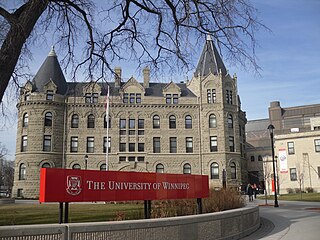
Winnipeg is the capital and largest city of the province of Manitoba in Canada. It is centred on the confluence of the Red and Assiniboine rivers, near the longitudinal centre of North America. As of 2021, Winnipeg had a city population of 749,607 and a metropolitan population of 834,678, making it Canada's sixth-largest city and eighth-largest metropolitan area.

The Manitoba Liberal Party is a political party in Manitoba, Canada. Its roots can be traced to the late 19th century, following the province's creation in 1870.
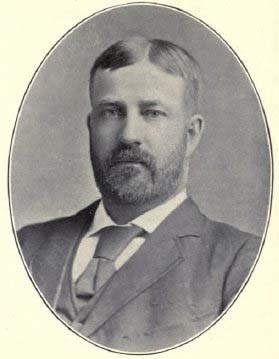
Sir Rodmond Palen Roblin was a businessman and politician in Manitoba, Canada.

Guy Maddin is a Canadian screenwriter, director, author, cinematographer, and film editor of both features and short films, as well as an installation artist, from Winnipeg, Manitoba. Since completing his first film in 1985, Maddin has become one of Canada's most well-known and celebrated filmmakers.
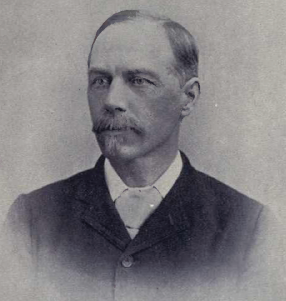
Sir Daniel Hunter McMillan, was a Manitoba politician. He was a cabinet minister in Thomas Greenway's government from 1889 to 1900, and served as the seventh Lieutenant Governor of Manitoba from 1900 to 1911.

Winnipeg is well known across the prairies for its arts and culture.
James Simmons Freer was a Canadian filmmaking pioneer.

John Paskievich is a Canadian documentary photographer and filmmaker from Winnipeg, Manitoba.
L'Atelier national du Manitoba was a three-year filmmaking and art project based in Winnipeg, Manitoba, Canada that ran from 2005 to 2008. The club's artistic output was devoted to the artistic study of the history, culture and ephemera of Winnipeg and Manitoba.
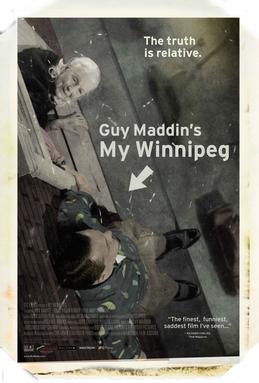
My Winnipeg is a 2007 Canadian film directed and written by Guy Maddin with dialogue by George Toles. Described by Maddin as a "docu-fantasia", that melds "personal history, civic tragedy, and mystical hypothesizing", the film is a surrealist mockumentary about Winnipeg, Maddin's home town. A New York Times article described the film's unconventional take on the documentary style by noting that it "skates along an icy edge between dreams and lucidity, fact and fiction, cinema and psychotherapy".

A wheat pool is a co-operative that markets grain on behalf of its farmer-members.

Archives of Manitoba, formerly the Provincial Archives of Manitoba until 2003, is the official government archive of the Canadian province of Manitoba. It is located at 200 Vaughan Street in Winnipeg, where it has been established since January 1971.
Robert Sopuck is a Canadian politician who served as a Member of Parliament in the House of Commons of Canada from 2010 to 2019. First elected in a by-election on November 29, 2010, Sopuck represented the riding of Dauphin—Swan River—Marquette from 2010 to 2015 and the riding of Dauphin—Swan River—Neepawa from 2015 to 2019. He is a member of the Conservative Party of Canada.
The Romance of the Far Fur Country is a historical documentary film portraying Arctic fur trappers in 1919 to commemorate the 250th anniversary of the Hudson's Bay Company in 1920. Directed by Harold M. Wyckoff, it is one of the earliest documentaries depicting the lives of the Arctic fur trappers.
The Hudson Bay Railway (HBR) is a historic rail line in Manitoba, Canada, to the shore of Hudson Bay. The venture began as a line between Winnipeg in the south and Churchill, and/or Port Nelson, in the north. However, HBR came to describe the final section between The Pas and Churchill.
The Canadian Government Motion Picture Bureau, founded as the Exhibits and Publicity Bureau, was the film production agency of the Government of Canada administered by the Department of Trade and Commerce, and intended to promote trade and industry. Created in 1918, it was the first government film production organization in the world.
Keystone Agricultural Producers (KAP) is Manitoba’s largest general farm policy organization, responsible for representing the interests of all Manitoba farmers. Their membership includes direct paying farmer and farm commodity groups. KAP is one of the province's most active lobby groups and is a member organization of the Canadian Federation of Agriculture.
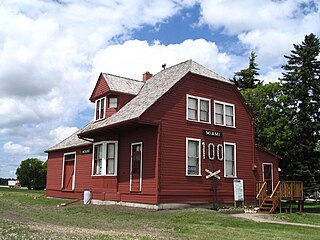
The Miami Railway Station is a former railway station that was built in Miami, Manitoba, by the Northern Pacific and Manitoba Railway Company in 1889. Designated as a National Historic Site of Canada in 1976, it is now a railway museum that operates during the summer. The museum is at the southern end of the village near the intersection of Highway 23 and Letain Street.
Deco Dawson is the professional name of Darryl Kinaschuk, a Ukrainian Canadian experimental filmmaker. He is most noted as a two-time winner of the Toronto International Film Festival Award for Best Canadian Short Film, winning at the 2001 Toronto International Film Festival for FILM(dzama) and at the 2012 Toronto International Film Festival for Keep a Modest Head, and was a shortlisted Canadian Screen Award nominee for Best Short Documentary for the latter film at the 1st Canadian Screen Awards in 2013.
References
- ↑ "Manitoba’s moving pictures". Winnipeg Free Press , August 17, 2013.
- ↑ "10 surprising facts about Canadians in cinema". Canadian Geographic , April 20, 2016.
- 1 2 Luke McKernan, "James Freer: The first Canadian filmmaker". Who's Who of Victorian Cinema , December 2012.
- ↑ "History of the Canadian Film Industry". The Canadian Encyclopedia , January 10, 2012.
- 1 2 3 4 Ken Goldstein, "How Winnipeg Invented the Media". Manitoba History Number 70, Fall 2012.